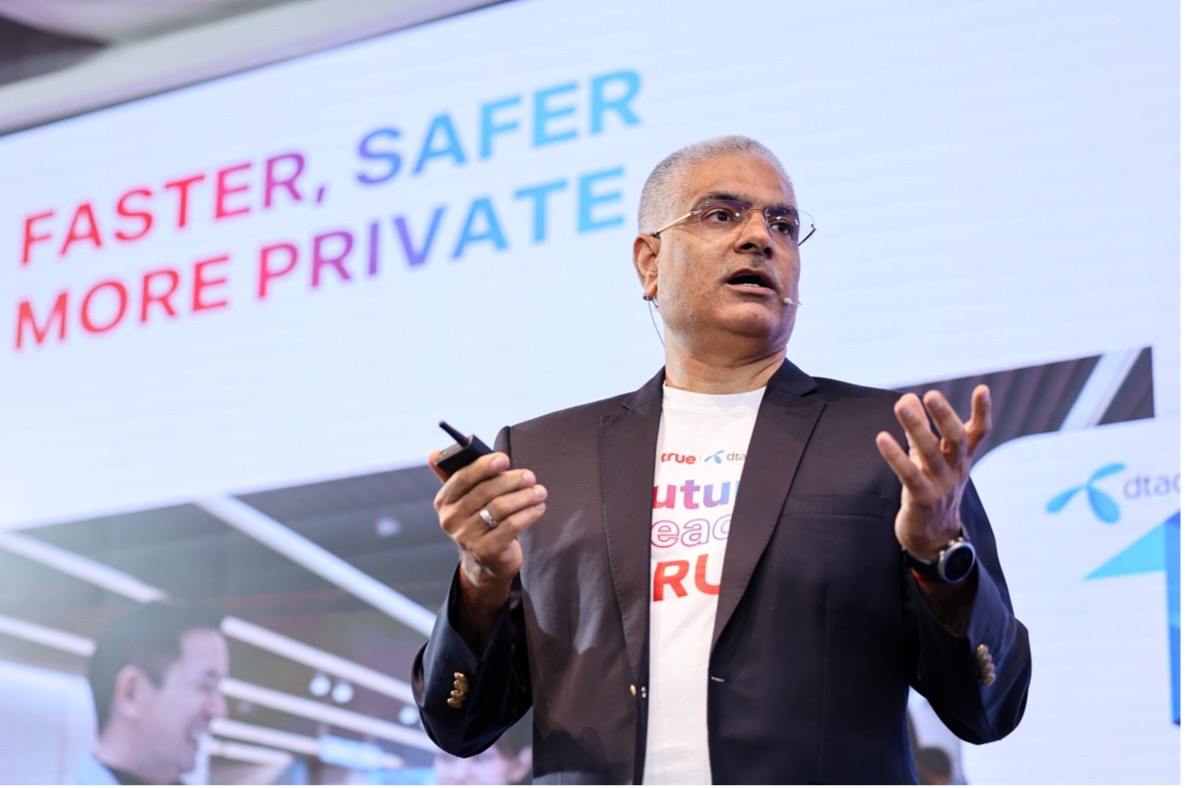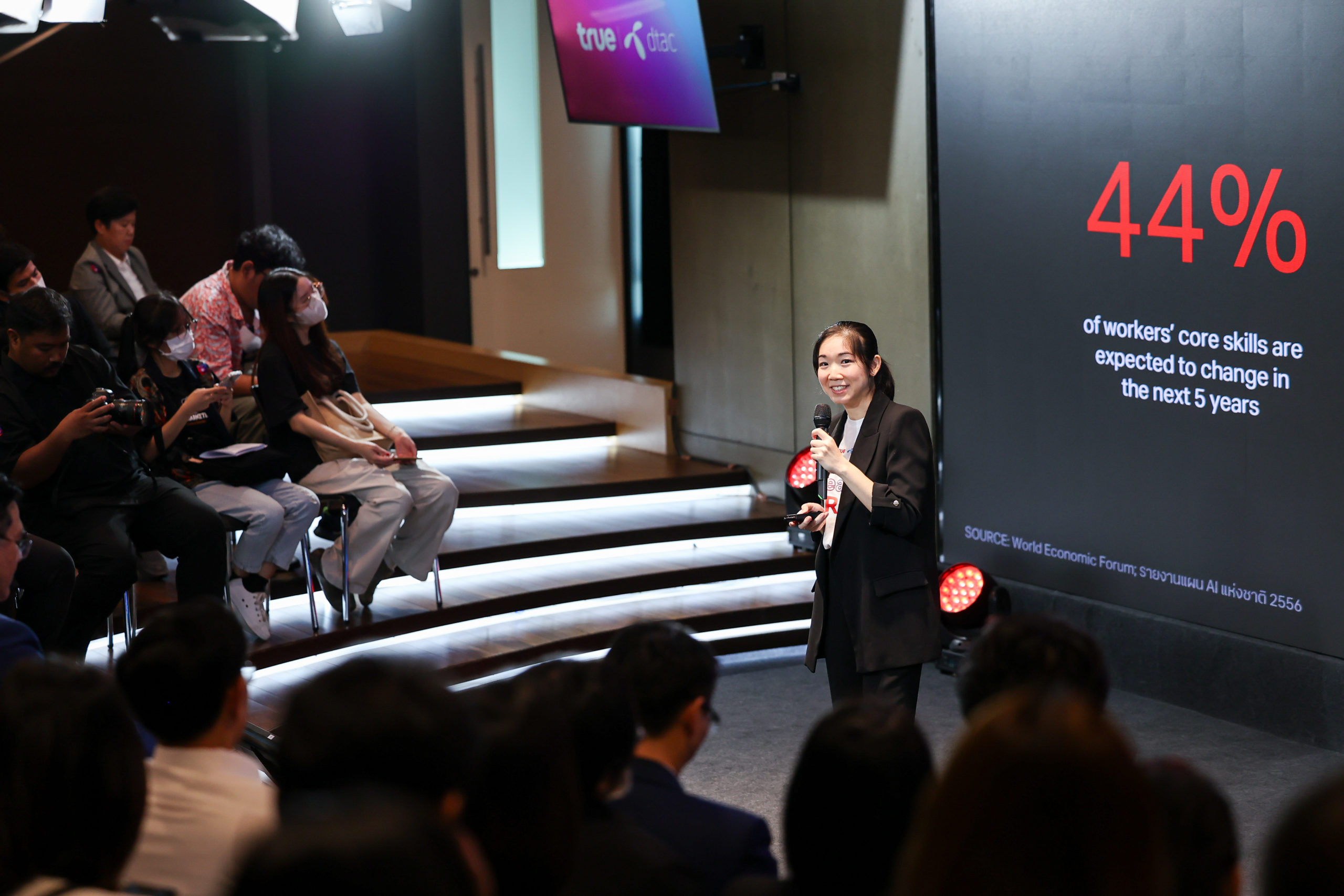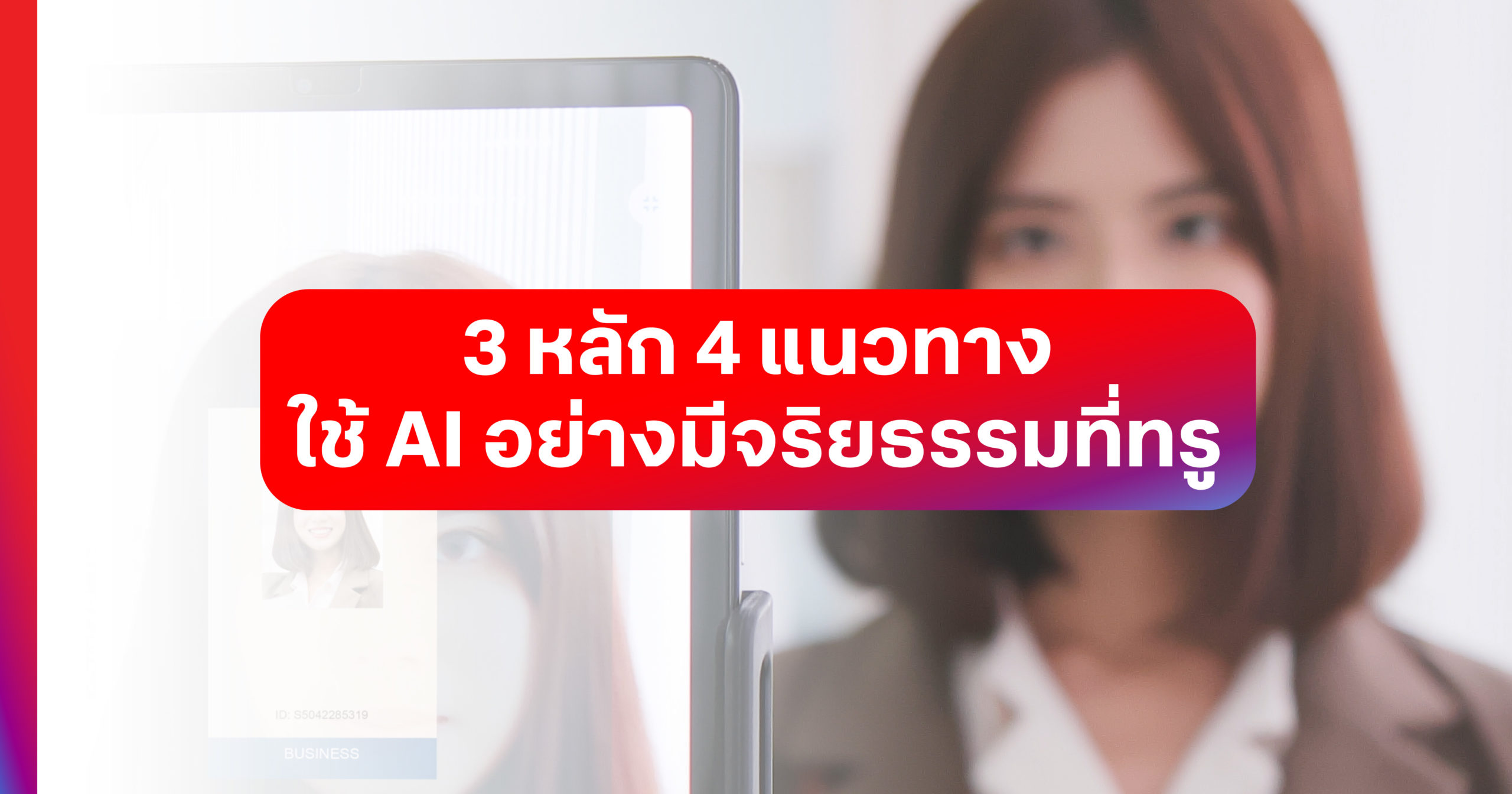Last May, Microsoft’s founder Bill Gates, OpenAI’s CEO Sam Altman, prominent political leaders and renowned academics signed a “Statement on AI Risk” to warn that artificial intelligence (AI) poses a risk of extinction for humanity, like a pandemic or nuclear war. Without going quite so far, the consultant firm Accenture has predicted that Generative AI like Llama, ChatGPT or Bard will impact up to 40% of working hours. In response to these risks, AI regulation has been heating up in China, Singapore, the United States, the United Kingdom, and the European Union.
The AI Opportunity
Sharad Mehrotra, Deputy Chief Executive Officer at True Corporation Plc, said at the AI Gets Good seminar that AI has been in use for over a decade. What’s new is generative AI, which produces convincing synthetic images (such Dall-e and Midjourney) and natural-sounding chatbots like ChatGPT and Bard.
“As True Corporation’s ambition is to be a telecom-tech leader in the region. Naturally, our overall stance is pro-AI. We believe that the risks of AI should not overshadow its overwhelmingly positive benefits for Thai society,” Mr Mehrotra said.
True Corporation has developed its own AI solutions for multiple use cases. For example, AI has been used to improve energy efficiency of its network. Enabled by AI, a network site’s energy consumption can be reduced by 10 to 15%. This is a significant contribution to True Corporation’s goal to lower greenhouse gas emissions by 42% before the end of 2030.
Moreover, True Corporation has integrated AI into its customer registration process. It improves security and privacy thanks to more robust identity verification and the complete removal of paper forms. Such approach prevents personal data from being leaked. In addition, AI can assist call-center agents to provide faster and more relevant service while only accessing the strict minimum amount of personal data.
True Digital Group, meanwhile, has applied AI to the monitoring of pig farms. Sensors attached to each pig enable AI to tell if a pig develops unwanted symptoms, such a cough. Early detection paves the way for the prevention of an outbreak of diseases at farms. Lotus Pick n’ GO, which operates smart staff-less stores, has used AI too to make retailing faster and easier. Its business model also boosts energy efficiency and efficiently manages stocks in real-time.

As True Corporation’s ambition is to be a telecom-tech leader in the region. Naturally, our overall stance is pro-AI. We believe that the risks of AI should not overshadow its overwhelmingly positive benefits for Thai society.
Ethical AI Usage
The aforementioned use cases reflect AI’s growing role and impacts on people’s daily life. In the face of AI’s increasing capabilities, True Corporation has recognized the need of AI governance. Only with proper governance, can it ensure its AI usage is proper, safe, and ethical.
“One of the very real AI risks for Thailand is late adoption. If businesses and government organizations simply ignore AI, Thailand will fall behind in every area,” Mr Mehrotra commented. “Businesses and government organizations must balance AI adoption with concerns such as errors, privacy instructions and biases.”
Aware of the risks, True Corporation has laid down three pillars of efficient and safe AI applications:
- Organizations must connect AI to tangible objectives and ambitions.
- Organizations must transform to be data-first in preparation for being AI-first. This means getting ‘everyone’ in the organization on-board with digital transformation.
- Organizations must ensure ethics are at the core to AI implementation.
Moreover, True Corporation has already drawn up “True’s AI Charter” to lay down AI governance guidelines for its internal use. This charter prescribes four following guidelines:
- Good Intent: AI should only be used to benefit humans.
- Fairness and Bias Mitigation: AI should not discriminate.
- Data Privacy and AI Functionality: Full respect to customer data and law.
- Transparency: AI should be explainable

The AI Disruption
Chonnikarn Jira, Head of True Digital Academy, said AI’s growing presence looked set to significantly change the labor market’s landscape and affect Thailand’s competitiveness. To ride on AI trends, it is necessary to prepare data, business strategies, and most importantly people.
Released by the World Economic Forum, The Future of Jobs Report 2023 predicted that 44% of workers’ skills will be disrupted in the next five years. The disruption will materialize at the time AI’s roles increase. Even the Thailand’s National Action Plan on AI for Thailand Development (2022 – 2027) or National AI Plan concludes that 30,000 AI talents must be trained up within six years.
“The development of human resources for disruptive technologies can’t be done by just one person or entity. It takes a strong ecosystem and cooperation from various sectors including universities, government agencies, leading tech firms and entrepreneurs for the successful development,” Chonnikarn emphasized.
According to the World Economic Forum, three most important skills in the AI Age will be: 1) Technology Literacy and Understanding in AI Applications; 2) Creative Thinking for AI integration; and 3) Analytical Thinking that can determine the accuracy of data provided by AI.
“AI won’t take jobs from us. But those with AI skills will take jobs from those who aren’t skilled. So, the best way is to strengthen ourselves is to pick up AI Augmentation skills. Human-AI relationships are going to become increasingly complicated in the future. Knowledge and understanding of technology therefore will be much needed,” the Head of True Digital Academy concluded.
Human-AI relationships are going to become increasingly complicated in the future. Knowledge and understanding of technology therefore will be much needed





